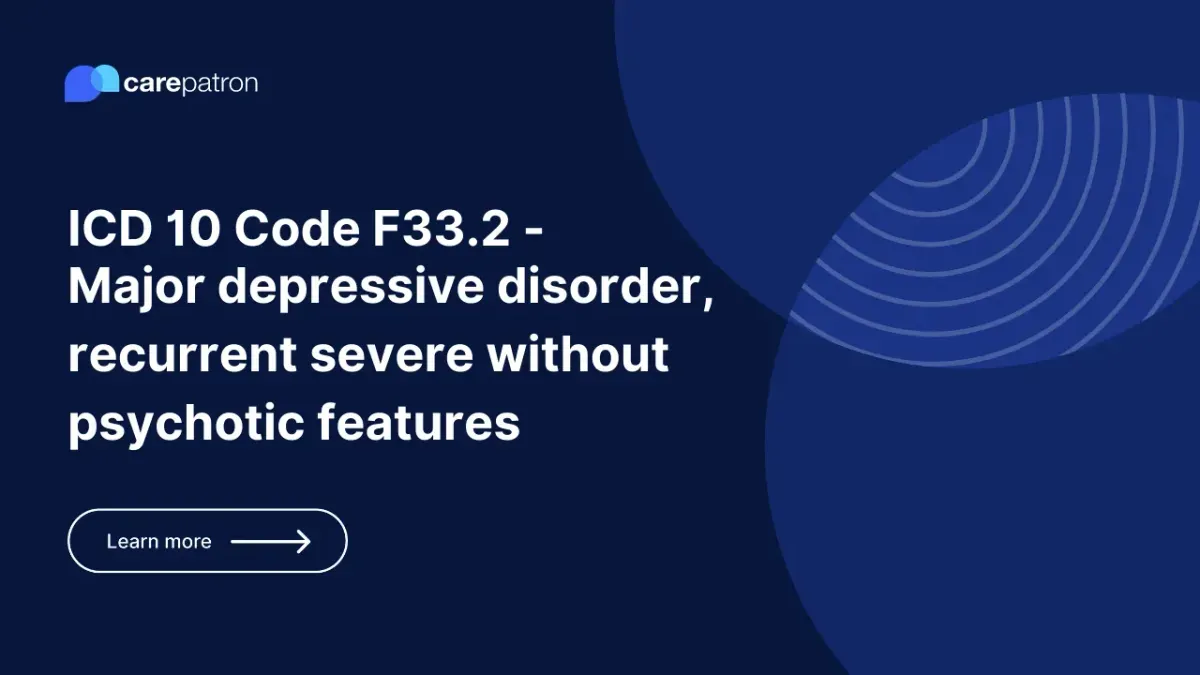
F33.2 – Major depressive disorder, recurrent severe without psychotic features
Understand the ICD-10-CM code F33.2 for major depressive disorder, recurrent, severe without psychotic features, including its clinical info, synonyms, and more.
Use Code
Commonly asked questions
ICD-10 code F33.2 refers to recurrent major depressive disorder, current episode severe without psychotic symptoms, distinguishing it from other codes based on both the recurrent nature and the severity of the current episode.
While not always classified as chronic, F33.2 often reflects a long-standing or relapsing condition that can significantly impair daily functioning.
Treatment typically involves a combination of antidepressant medications, psychotherapy, and in some cases, electroconvulsive therapy (ECT) for severe symptoms.
EHR and practice management software
Get started for free
*No credit card required
Free
$0/usd
Unlimited clients
Telehealth
1GB of storage
Client portal text
Automated billing and online payments
